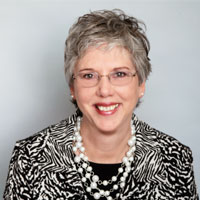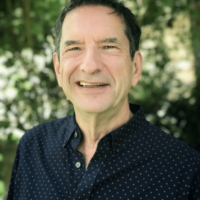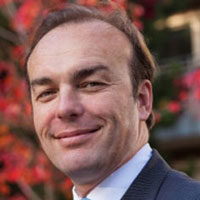One way to define Transformational Presence is “a personal presence that creates the optimal space or conditions through which transformation can unfold.” One of those “conditions” is to see people in their greatness, even when they themselves can’t. The transformational leader or coach looks for the best in every person and helps create conditions that allow that greatness to shine through.
One of the ways that we can call forth the greatest potential in others is through trusting them. We live in a culture where trust is something to be earned. Yet in my own experience, I’ve also learned that trust can be a choice. It’s not always an easy choice, but we can do it. It’s really about a fundamental worldview. Do you believe that people are inherently good and want to do the right thing when given a chance, or do you believe that people are inherently selfish, only looking out for themselves and what they can get?
Several months ago in his “Soul of Business” series, filmmaker Nic Askew profiled Rob Lindemann, president of a chimney service company. In this short video, “Concerning Trust,” Rob Lindemann speaks with such honesty and simplicity. His message: Putting complete trust and faith in his employees to always do the right thing has completely changed his business.
Rob Lindemann chose to create an empowering environment for people by seeing the best in them. In his words, “People want to bloom. They just want an environment in which they can feel fulfilled, do a great job, and push things forward. We took away the things that were getting in the way of allowing us to trust one another, to lean on one another. Once those things disappeared, we started seeing people really coming into their own.”
Watch the video before reading on. It will take less than five minutes.
Towards the end of the video, Rob asks, “What do I need to control when I unconditionally trust the people who work for me? Nothing. People tend to control in areas where they don’t have faith and trust.”
Stepping beyond judgment or blame, ask yourself, “What do I feel a need to control in my life or work?”
There may be very good reasons that you feel you need that control. It’s OK. Yet let’s go a little deeper. Be curious and compassionate with yourself and ask yourself this simple question: “Does that need to control belong to now or to another time in your life?”
If it belongs to another time, then what is the new reality that you want to create for yourself now? Don’t worry about how to do that. Just acknowledge the new reality you want to create. And then ask yourself, “What is just one step I can take now to begin moving toward that reality?”
If indeed that need to control really does belong to now, that’s OK, too. Just consider this question: “What wants to shift within me and my circumstance around faith and trust?”
Perhaps there is a conversation that wants to happen. Perhaps there is a deep fear that it’s time to work through. Perhaps there is a relationship to be healed.
Again, don’t worry about how to do it. Just acknowledge what wants to happen, and give yourself time to get used to the idea. As the energy starts to shift within you, a next step will become clear. And that’s all you need – just a next step. That’s doable.
Of course, we cannot change someone else, yet we can choose how we see the other person. That shift within you might open a door within them.
Choosing to trust may need to come in stages, and that’s OK, too. Just be intentional about it. In the end, lack of trust holds us hostage. Where in your life is it time to set yourself free?
P.S. To learn more about partnering with potential, paying attention to the messages all around us, see Chapter 17, “The Potential-Based Approach,” in my latest book, Create A World That Works. The book is also available in digital format.
If you enjoyed this blog post and found it helpful or inspiring, I invite you to subscribe to our free weekly newsletter by clicking here.





































